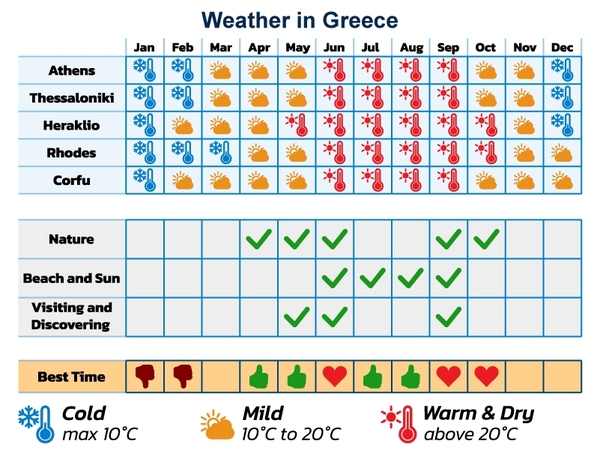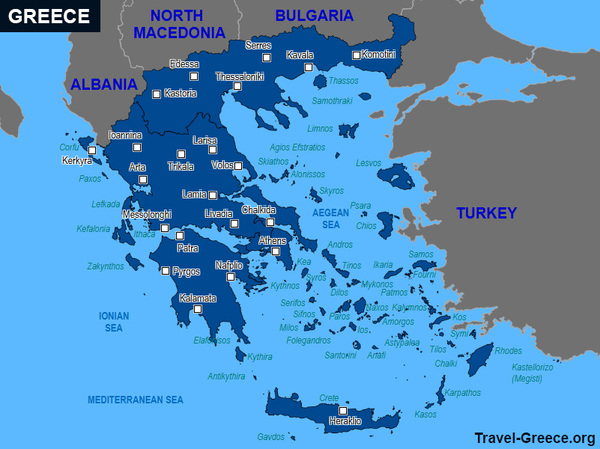Planning the perfect visit to Greece involves considering the diverse weather conditions each month offers. Let's delve into the ideal times to experience this enchanting destination.
January:
January embraces Greece with its coldest temperatures and frequent rainfall. However, this presents a unique chance to immerse yourself in the charm of mainland cities, with the added advantage of more budget-friendly hotel prices.

February:
As February unfolds, the average temperature hovers around 14 degrees Celsius. While coastal cities remain snow-free, mountainous regions and ski resorts, such as Mount Parnassus and Mount Chelmos in the Peloponnese, welcome the pristine beauty of snowfall.
March:
March introduces unpredictable and cool weather, marked by rapid changes from clouds to sunshine and rain within a single day. With daylight extending, the anticipation of spring permeates the atmosphere.

April:
April's weather proves capricious, alternating between gusty winds and rain. Despite the uncertainty, temperatures gradually rise, offering a glimpse of the warmer months ahead.
May:
May brings a substantial increase in temperatures, averaging around 23 degrees Celsius. Although the air warms up, the sea remains chilly, discouraging early swimmers from taking the plunge.
June:
Welcoming the summer season, June sees rising temperatures, warmer waters, and extended daylight. With an average temperature of approximately 29 degrees Celsius, some days can be scorching. Savvy travelers seize the early season for budget-friendly accommodation.

July:
July claims the title of Greece's hottest month, marking the peak of the summer season. Accommodations and beaches teem with visitors, while the risk of forest fires heightens due to temperatures reaching 30 degrees and beyond.
August:
Matching the intensity of July, August stands as another scorching month in Greece. Accommodation prices peak, but warm and pleasant nights create an ideal ambiance for nightlife and dining experiences.
September:
September emerges as a dry month with lingering warmth. Tourist numbers gradually dwindle, presenting an opportune time to secure accommodations for a less crowded and serene vacation.
October:
With temperatures averaging around 23 degrees during the day, October marks a gentle descent into cooler weather. Chilly nights around 16 degrees provide a comfortable backdrop for sightseeing without the sweltering heat.
November:
November brings cooler days and an increased likelihood of rain and overcast skies, setting the stage for a more contemplative experience in Greece.
December:
Embarking on the rainy season, December maintains an average temperature of about 14 degrees, encouraging travelers to embrace the unique charm of a Greek winter.












